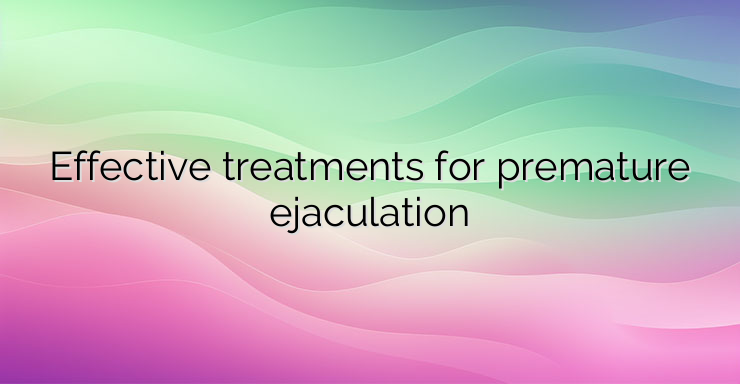Premature ejaculation, the release of seminal fluid upon minimal sexual stimulation, at the beginning of or soon after vaginal penetration is beyond the body’s conscious control. Although it does not threaten men’s health, it is considered a health problem due to its physiological characteristics and because it often leads to psychological problems – depression, low self-esteem and even anxiety and stress before sexual intercourse. Less often, it can also be a symptom of more serious diseases. There are pharmacological, alternative and behavioral forms of treatment. A study on the effectiveness of different therapies was published in the British journal Health Technology Assessment in 2015. It reviewed 103 clinical studies focusing on the success rate of certain types of treatment for premature ejaculation. Compared to control and placebo groups, eutectic ointments and sprays containing local anesthetics demonstrated the greatest effectiveness. They reduce the sensitivity of the superficial nerves of the penis and effectively delay ejaculation, which requires strong nervous excitability in the genital nerves. Selective serotonin reuptake inhibitors are also highly effective. These are antidepressants that suppress the neuronal uptake of serotonin in the axoplasm of brain neurons. Preparations against premature ejaculation with proven action contain the inhibitors citalapram, escitaloparam, paroxetine or sertraline. In the treatment with them, in addition to delayed ejaculation, an increased pleasure from intimate contact is also reported. NEWS_MORE_BOX From the review of alternative medicine in the study, data on the benefits of yoga are not usable due to the lack of sufficiently scientifically sound studies. However, the success of acupuncture (acupuncture) was statistically significant and legitimate, albeit with a slower onset. According to the statistical analysis, these methods are even more successful in combination with behavioral therapy recommended by a sexologist. The researchers caution that some of the data studied also observed the use of herbal therapies based on popular aphrodisiacs. In addition to being the least effective, they were also associated with more frequent side effects. Self-treatment of this problem is strongly contraindicated, consultation with a doctor is advised to choose the most appropriate treatment, which does not necessarily have to be medicinal.


Leave a Reply